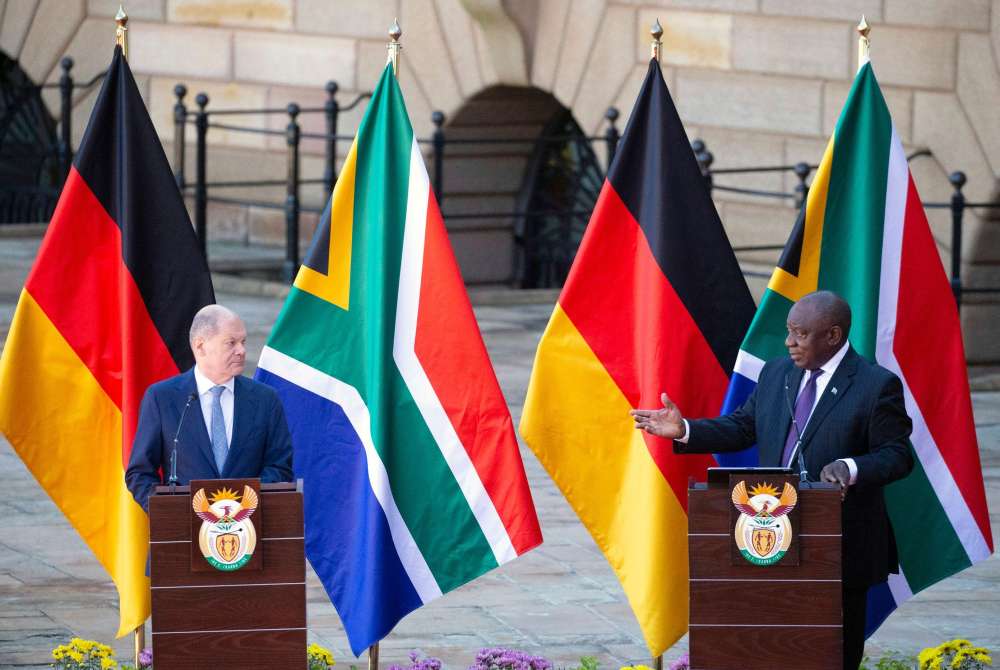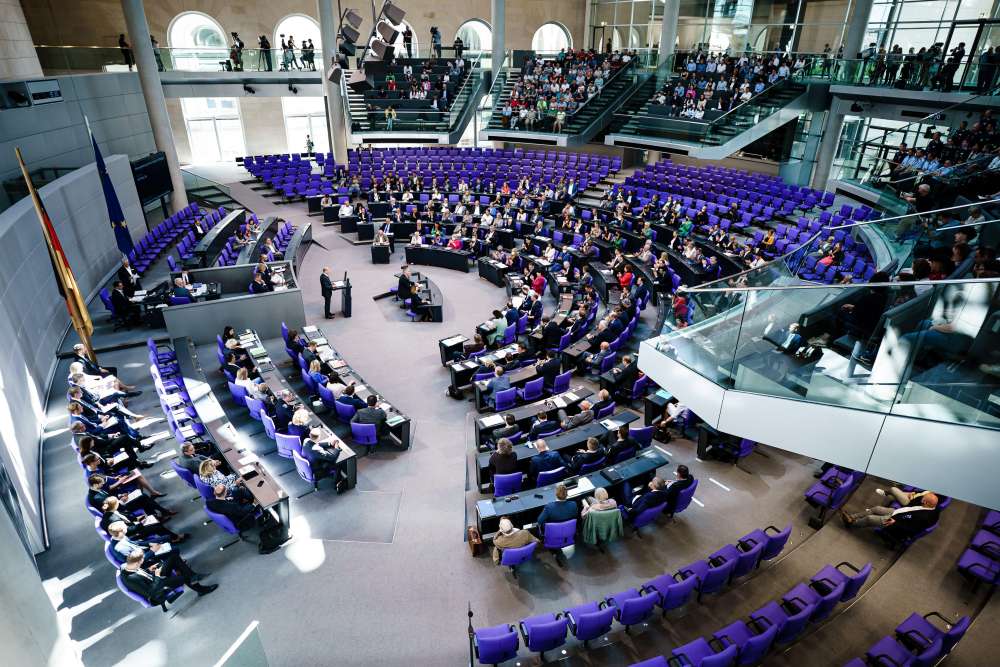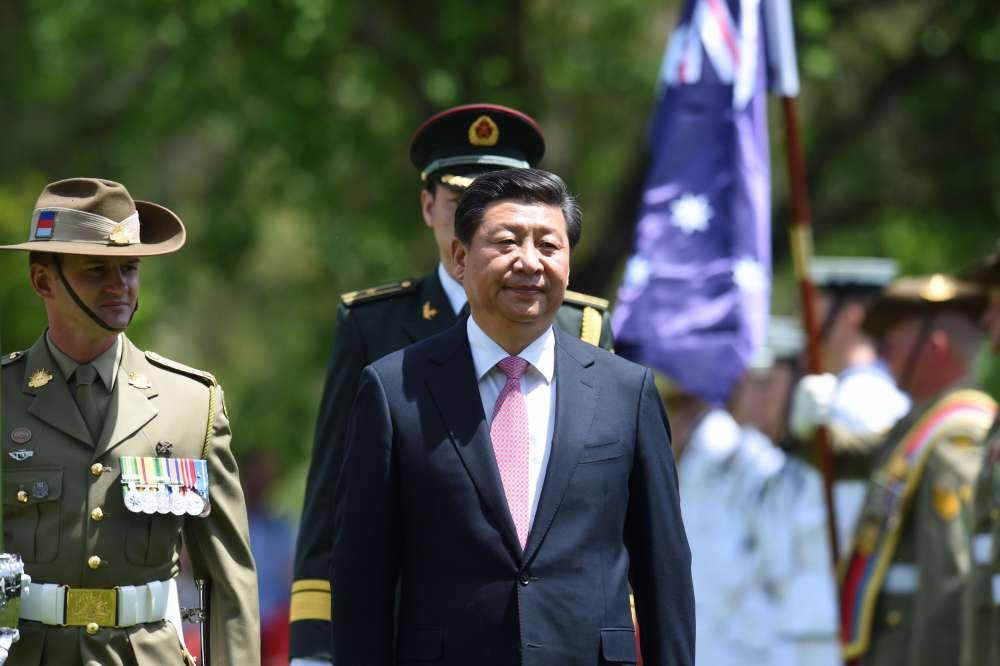No More Navel-Gazing: A Global Outlook on National Security

Source: KIM LUDBROOK/EPA-EFE/Shutterstock
For Germany's national security strategy to work, it cannot afford to separate its national and international interests. This mindset change will require Germany to rethink how it sees itself, its position in the global order and its outlook on the world itself.
Key Points:
- For Germany, looking to partners outside of Europe is as important as looking within.
- For an effective security strategy, Germany will need to factor in how insecurity around the world directly impacts its national security interests.
- Prioritizing principles of accountability and justice will help Germany’s national security strategy build legitimacy both inside and outside of Germany.
With the now-famous term ‘Zeitenwende’ – i.e., turning point – German Chancellor Olaf Scholz has started to push for a reorientation of Germany’s security policy following Russia’s military incursion into neighboring Ukraine. Already in February 2022 – mere days before Russia’s invasion – Scholz and his high-powered delegation to the Munich Security Conference were referring to an urgent need for a sea-change (‘Gezeitenwechsel’ ) in Germany’s security policy. Even so, the protracted war in Ukraine and about-turn in Germany’s stance on delivering weapon were not foreseen by most. It was Moscow’s invasion that prompted Scholz to propose a dramatic policy reorientation that was more than just talk, breaking Germany’s decades-long stance on military spending and jolting the country into a rethink on how to (re)position on security.
Now, as Germany embarks (perhaps slowly) on its efforts toward a national security strategy, it is important to zoom out from the current European security crisis and examine the broader geopolitical shift that Scholz already called for in Munich. To do so, Germany will need to rethink how it sees itself, its position in a changing global order and its outlook on the world.
When crafting its new security strategy, Germany cannot afford to separate the national from the international. Berlin’s best bet at a workable and effective national security strategy will require it to project outward: to develop a strategy that recognizes the importance of international concerns on domestic soil. In launching the process for a national security strategy, German Foreign Minister Annalena Baerbock emphasized the importance of enhancing Germany’s foreign and security policy instruments. A good, if bold, step in the right direction.
What are the main issues that Germany needs to factor into its security policy shift? Three that stand out: building strategic partnerships beyond Europe, promoting human security and conflict prevention, and seeking accountability and justice.
» Germany cannot afford to separate the national from the international. «
Strategic Partnerships Beyond Europe
The German government has articulated an interest in shaping a policy that is informed by its European identity. The shared geography and mutual interest dictate as much. While European alliances can be somewhat assumed (even if they are occasionally tumultuous), relations with the rest of the world are less predictable. For Germany, looking to partners outside of Europe is perhaps as important as looking within – something that Chancellor Scholz already knows. In his first visit to the African continent in May, one thing was clear: African states are strategic partners for Germany on several fronts, including peacebuilding, security, development, democracy promotion, the climate crisis, and population studies.
The German national security strategy must look at the potential for these partnerships as mutually beneficial – a horizontal relationship between equals. However, that is easier said than done. Germany has not always treated African nations as equal partners. But now, Germany wants – and needs – the buy-in of African states to advance some of its strategic positions, including on the often-controversial question of migration.
Human Security
In this context, it will be crucial for Germany to develop a clear strategy that better articulates the root causes of internal insecurity and offers workable solutions to address them. This will require internal reflection on what Germans consider the major threats to their safety and security. Baerbock’s whirlwind tour of Germany in July where she consulted with civil society, business and ordinary people was a step in the right direction. However, again, it will be just as important to solicit the views of those outside of Germany on the root causes of their insecurity. This will mean factoring in how insecurity and conflicts around the world directly impacts Germany and its national security interests. To do so requires a broader take on human security that is inclusive.
The war in Ukraine has tested Germany’s positioning on conflict. Due to its geographic proximity, Russia’s recent invasion has shaken countries across Europe, including Germany. However, many conflicts continue to rage around the world and these, too, need Berlin’s focus. From Cabo Delgado in northern Mozambique to Yemen in the Middle East; across the Sahel from Niger to Chad; and in Kashmir or Caracas: Germany cannot afford to ignore these crises, as their consequences – including deepened inequality, forced displacement and global insecurity – will impact Germany in the medium to long term.
Accountability and Justice
Accountability and justice are foundational elements of Germany’s political identity and constitution. Therefore, it will be important for Germany to factor democratic oversight into its security sector, advance internal and external checks and balances to uphold accountability and transparency, and ensure that no one is above the law. This would contribute to the legitimacy and ownership of the national security strategy, both within and outside Germany.
For this to happen, the task is not only to align justice and security policies within Germany, but also to communicate them consistently abroad. For example, Germany’s support for regional human rights courts, the International Criminal Court, the International Court of Justice, and other mechanisms of accountability at the national, regional and international level will need to be clearly articulated. This focus on justice should be undergirded by guiding principles and values informing Germany’s stance, such as the rule of law and equality.
» Positioning Germany’s national security strategy within the ever-changing global context will help it to be as responsive as it is pragmatic. «
What Else?
There are other important areas to consider in connection with Germany’s national security strategy, such as energy, health, migration, integration, populism, economic disruptions, and the climate crisis. To develop new approaches for tackling these issues, Germany must make crucial adjustments to its policy (and practices) that focus on the bigger picture.
Positioning Germany’s national security strategy within the ever-changing global context will help it to be as responsive as it is pragmatic. Doing so will ensure that Germany’s national interests reflect the global realities of a possible economic downturn, the rise of authoritarianism and threats to the rule of law, a crisis-point climate emergency, shifting geo-political alliances, and the interconnectedness of our challenges and opportunities. Within this landscape, Germany has the opportunity to reposition itself prominently within a rules-based international order.
Ottilia Anna Maunganidze
Head of Special Projects, Institute for Security Studies (ISS)
Weiterlesen

Editors’ Note: A Strategy for the “World After”
In opinion pieces, interviews and debates, 49security will feature suggestions on how Germany can better position itself in a world that is rapidly changing. A few words on what is to come from your editorial team.

Security through Preparedness: Lessons from Australia and the Indo-Pacific
For any country with strong stakes in a rules-based order, China’s recent aggressions in the Indo-Pacific should set off alarm bells. It’s time for new thinking about national preparedness – as Australia has learned in recent years.

It’s the Politics, Stupid: Lessons for Germany from US Security Strategies
A successful national security strategy needs a solid political foundation. In democracies, that foundation – for better or worse – rests on the electoral process and the political leaders it produces.